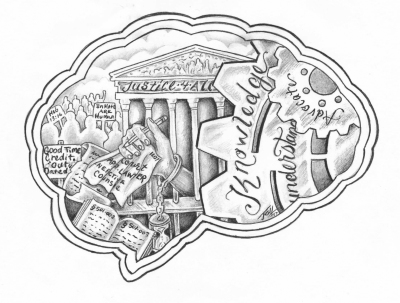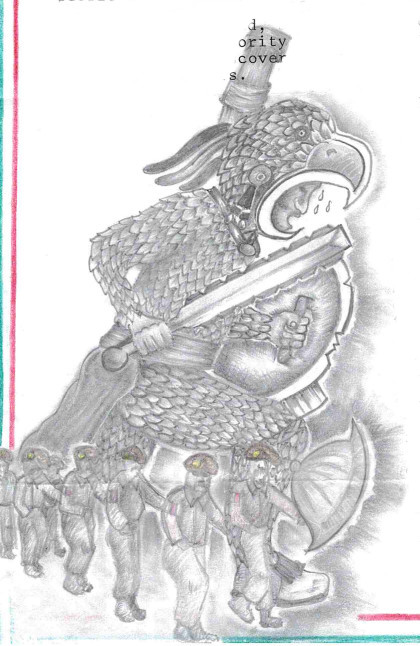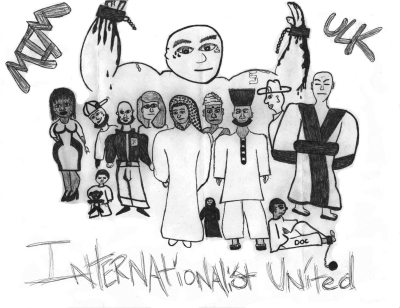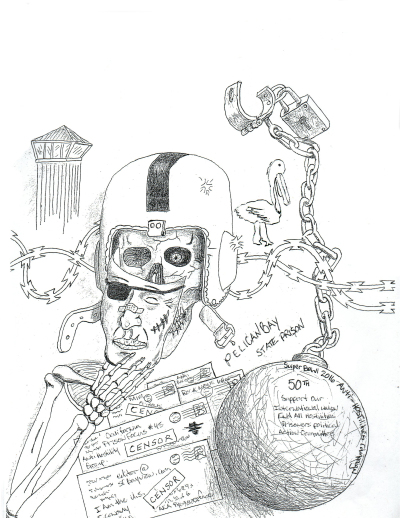
Inform the Streets

Revolutionary greetings to all kaptives inside the gulags of the United $nakes of A-murderer. As kaptives with lots of time on our hands, knowing firsthand the oppressive state apparatus, we must work to politicize ourselves, then our contacts on the streets. As there are many orgs in existence pushing for exposure of prison conditions, we must do our part; persistently sending them reports on incidents of violence, food and health care neglect, mail tampering, and the overall divisive and mentally debilitating tactics used by the state (and its pig lackeys).
We must teach one another how to analyze these conditions from an anti-imperialist perspective. We then must help to raise the consciousness of those outside the gulag (individuals, orgs, support networks, etc.). We must help them to see the direct cause of our treatment as imperialism; then we can tie in some of their personal struggles as belonging to the lumpen class/oppressed nation as well, hence imperialism as well.
It appears that our path forward is constantly blocked or taken over by enemy, backwards, or conservative elements without our nationalist movements. Hence our nationalist consciousness remains a strong aspect to unify around. And we should study projects such as the Jackson Rising platform, to both amplify our call to national unity as well as develop the tactics and strategies used by them. By showing the link between imperialism and national oppression, we can direct the path forward.
MIM(Prisons) adds: Jackson Rising was a conference in 2014, which launched the Cooperation Jackson project based out of Jackson, Mississippi. Cooperation Jackson is building dual power for colonized New Afrika, and is an outgrowth of the Provisional Government of the Republic of New Afrika, and the Jackson-Kush plan.
Cooperation Jackson’s aim for self-determination for New Afrika is certainly righteous. Yet we want to raise one line question in the project which we believe is extremely important. The economic analysis of Cooperation Jackson seems to deny the petty bourgeois nature of non-lumpen New Afrikans. According to a document titled The Jackson-Kush Plan: The Struggle for Black Self-Determination and Economic Democracy,
“Operation Black Belt is a campaign to organize the oppressed peoples and exploited classes in the South, particularly concentrating on organizing Black workers in the region who form the core of the oppressed Black or New Afrikan nation that has been super-exploited for centuries, into militant, class-conscious and social movement-based worker associations and unions.”(p. 13)
While it was reasonable to refer to New Afrikans in the 1960s and earlier as proletarian, or exploited, we believe there is no way that any U.$. citizens could be considered super-exploited today. The struggle for unionization and benefits for citizen-workers today comes largely on the backs of the actually super-exploited people working across the Third World.
While we acknowledge that Cooperation Jackson is one of the only projects we know of which is putting self-determination into action against the United $tates government, we believe that a misstep on the question of the labor aristocracy within the imperialist countries places the struggles of internal semi-colonies in opposition to the proletarian masses in the Third World. How Cooperation Jackson might put this analysis into action in its work is up to New Afrikans working within that project. But we want to push them on clarifying/updating their economic analysis.Our comrade in Ohio suggests above that our subscribers need to raise their own consciousness, and then reach out to people outside prisons to help raise their consciousness. MIM(Prisons) struggles with other organizations through ULK regularly. Our subscribers struggling with other orgs through the mail, or ULK, is certainly another medium to advance the anti-imperialist movement. You can write in to MIM(Prison) for reading material about the labor aristocracy. Cooperation Jackson can be reached at PO Box 1932, Jackson MS 39215.
Related Articles:











